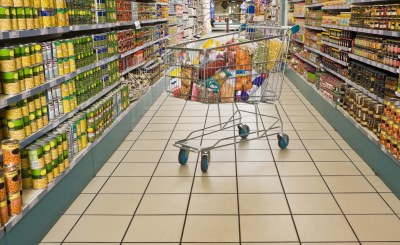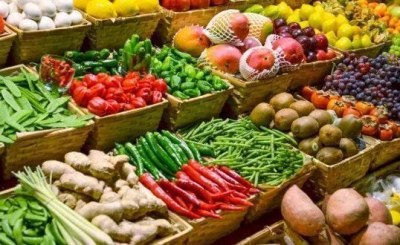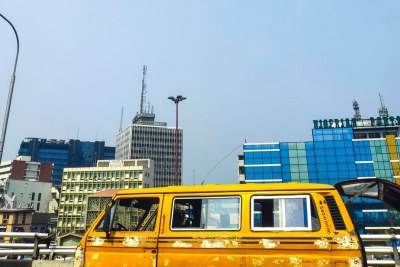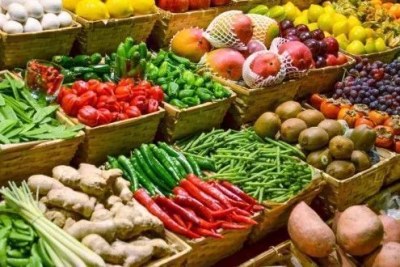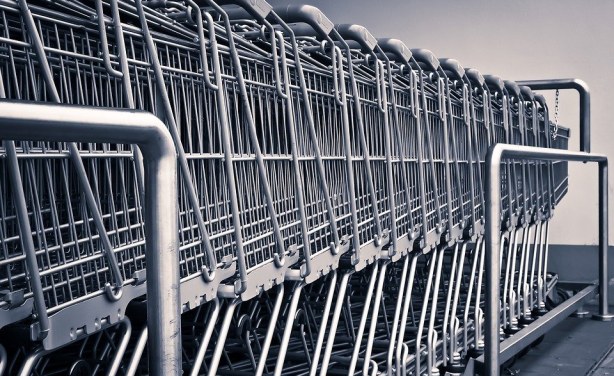-
Nigeria: Forget Country's Slowing Inflation - Food Prices Still High
Premium Times, 26 October 2021
The NBS compares the prices of egg, rice, garri and more. Read more »
-
Nigeria: Food Prices Soar Amidst Rising Transport Fare
Vanguard, 26 October 2021
As analysts project worse food price pressures for 2022 Read more »
-
Nigeria: Food Prices Moderates Inflation to 17.01%, Kogi in Highest Rate
Vanguard, 16 September 2021
The National Bureau of Statistics, NBS, said headline inflation dropped to 17.01 per cent in August, 2021 following slower pace of increase in food prices. Read more »
-
Nigeria: Why Food Prices Are High in Nigeria - Buhari
Premium Times, 1 October 2021
The prices of major staple foods in Nigeria have risen at an average of about 98.85 and 99.9 per cent respectively in the last year. Read more »
-
Nigeria: Food Prices Rise, But Nigerians Struggle With Same Income
Premium Times, 21 October 2021
One expert says it is "ridiculous" for the presidential food bill to rise significantly at a time of low government revenue and high food inflation that has left most citizens with… Read more »
-
Nigeria: Expert - Inflation Not Likely to Leave Double-Digit Zone Soon
This Day, 27 October 2021
With the continued weakening of the naira and the knock on effect on other areas of the economy, the Chief Commercial Officer, Prosperis Holdings, Mr. Efe Shaire, has expressed… Read more »
-
Nigeria: Inflation Set for Further Moderation in Oct - Analysts
Vanguard, 22 October 2021
As headline inflation moderates for the 6th consecutive month to 16.63 per cent in the month of September this year, analysts have predicted a sustained reduction in the month of… Read more »
Inflation Slows But Nigeria's Food Prices Still High
Food inflation reached its highest level in 12 years in March 2021 with the average price of food 22.95% more expensive than in 2020. While the rise has slowed in the last six months, headline and food inflation remained significantly high in September 2021, according to the National Bureau of Statistics.
Inflation indicators compare prices of goods and services in 12 months. A decline does not necessarily imply a reduction in prices, instead it shows the rate at which price increases slowed, compared to previous months.
The rise in food prices became pronounced in 2018 after Nigeria closed its land borders and blocked access to foreign exchange for food importers as part of efforts to encourage domestic production. With local production not rising as expected, the measures only led to a significant rise in prices, made worse by rising insecurity.
Amid the increase, millions of working Nigerians have retained the same income and the minimum wage remains U.S$73. Many families have reported having to spend their entire salaries or a little less, just on food.
President Muhammadu Buhari has said that the significant spike in food prices is caused by middlemen who have been buying and holding essential commodities.
InFocus
-
Determined to blunt the economic trauma of Covid-19 and minimise its impact on poverty, unemployment, insecurity, and violence, Nigeria's President Muhammadu Buhari launched ... Read more »
-
Africa's biggest economy is gripped by soaring food prices, high unemployment, and surging inflation - a cocktail that the World Bank warns is leading more Nigerians into a vicious ... Read more »
-
In January 2021, the country's food inflation rose to its highest level since 2008, making it the highest in over 11 years. Analysts blame the rise on the Covid-19 pandemic, dollar ... Read more »
